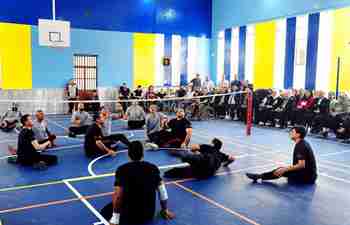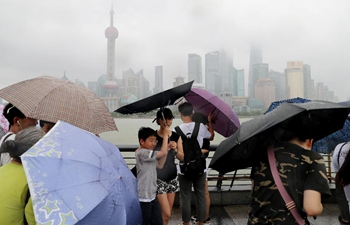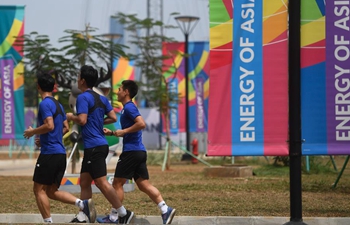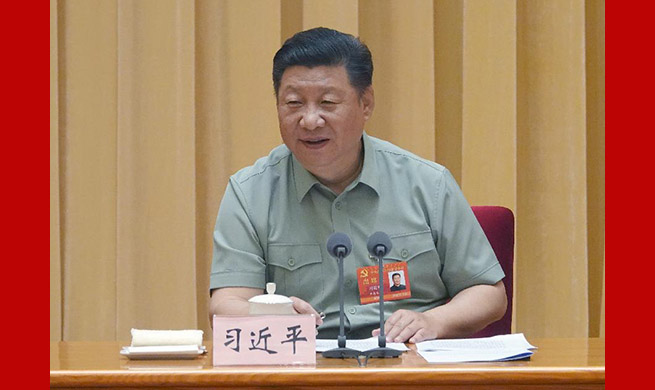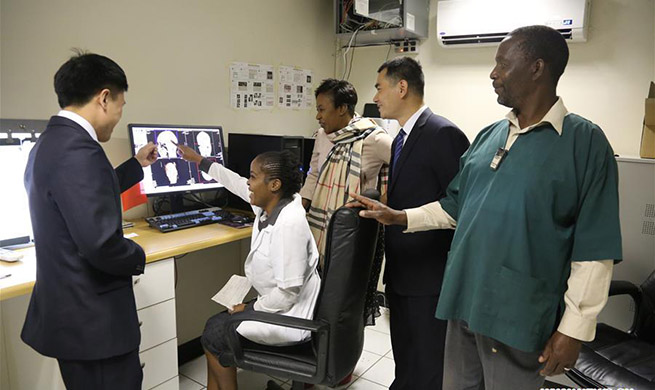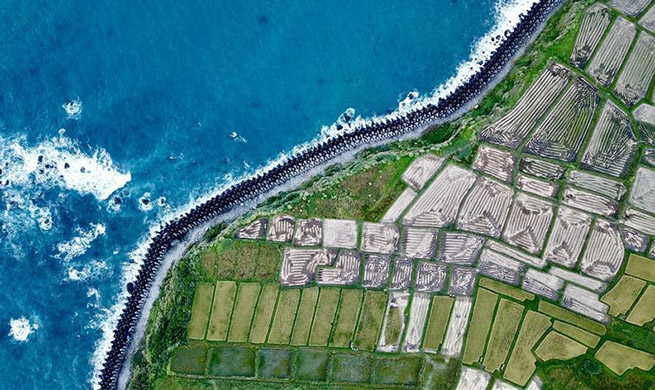by Mohamed al-Azaki
SANAA, Aug. 19 (Xinhua) -- While more than 25 million Yemenis are preparing to celebrate Eid al-Adha, or Islamic "Festival of Sacrifice" starting on Aug. 21, millions of them have been suffering from destitution amid more than three years of civil war.
Among them were more than tens of thousands of civil servants who have remained unpaid for nearly 24 months due to the conflict.
The main reason was that the internationally recognized government moved Yemen's Central Bank from the rebel-held capital Sanaa to the government-run southern port city of Aden in August 2016, Abdulkawi al-Mualimy, a pro-government official at the central bank, told Xinhua.
"The government has accused the armed Houthi rebels of using the bank money to finance their military deployment," he said.
However, the accusations were denied by the Houthi group.
In Souk Al-Milh, the most busiest popular market in the Yemeni historic UNESCO-listed Old City at the heart of Sanaa, many people are struggling to afford their Eid shopping.
"I pass through the market and just look to the new clothes and candies but I'm not able to buy because I have not been paid for many months," said Ali Awfan, 45, a government employee in the old city of Sanaa.
"It pains me to admit that I'm not able to buy new clothes for my children in this Eid," the father of six told Xinhua.
The Yemeni war has so far killed more than 10,000, mostly civilians, and displaced around three million others, according to recent reports by the United Nations humanitarian agencies.
The war pitted the Sunni exiled government, backed by the Saudi-led coalition, against Iran-allied Shiite Houthi rebels who control much of the north, including Sanaa.
Several unique tall buildings near the Souk Al-Milh market have been destroyed to the ground by bombing.
Lined with small shops on each sides of zigzag paths floored with polished black stones, the market is full of imported and local goods, including clothes, shoes, sweets, walnuts, almonds and peanuts.
The residents say the prices have gone through the roof and very few people can afford to buy.
"Traders, shoppers and all people have been badly affected by this war. There were no much in sales," said Mohamed Abu al-Arabi, an owner of a shop in the Souk Al-Milh.
"The people have become very poor to afford Eid shopping. They have neither salaries nor other income, as the prices go high due to the war," he lamented.
The Yemeni local currency has been sinking faster in recent months. The exchange centers are trading one U.S. dollar for 550 riyals, more than doubling from the 215-riyal rate set before the war.
Years of conflict has devastated Yemen and created the largest food insecurity emergency in the world, according to the UN aid agencies.
Even before the war erupted in early 2015, almost half of the Yemeni people had lived below the poverty line with two thirds of the young people unemployed and social services on the verge of collapse.
The war has so far left more than 18 million people in need of humanitarian assistance, according to aid agencies.
Fortunately, the UN special envoy to Yemen Martin Griffiths said formal invitations were sent to the government of President Abd-Rabbu Mansour Hadi and Houthi rebels for peace talks in Geneva on Sept. 6.
Hasan al-Ahlawan, an owner of a shop in Al-Milh market, expressed his high expectations of the peace meeting.
"My letter to the coming meeting between all Yemeni rival parties in Geneva is that we want a comprehensive peaceful solution to end the war and economic crisis," said al-Ahlawan.
"All Yemenis and all hopes will eye Geneva meeting," he added.





